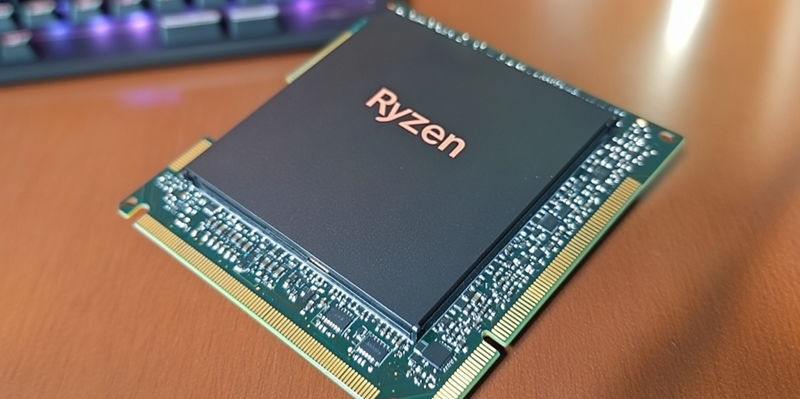The recent market report by Danawa reveals significant shifts in the Korean DIY computer market, where AM5 motherboards and their compatible CPUs are now outpacing their AM4 counterparts. As of now, AM5 motherboards hold a dominant 65% share of the AMD motherboard market in South Korea, leaving AM4 with the remaining 35%. This change aligns with the launch of the AMD Ryzen 7 7800X3D in January 2023 and the subsequent release of the Ryzen 9000 series, which bolstered AM5 motherboard sales significantly.
However, within the CPU market, it’s the Ryzen 5 7500F that has emerged as the best-seller, boasting a 29.88% share of CPU sales—nearly one-third of the total. This 6-core, 12-thread CPU, priced under $200, offers high performance per cost, making it an attractive choice for many consumers. The Ryzen 7 7800X3D follows in popularity with a 14.06% share, while the older AM4-based Ryzen 5 5600 still maintains a strong presence with a 15.19% share. The Ryzen 5 5600G, however, has seen a sharp decline from 14.21% to 3.26% since May this year. This reveals a clear preference among consumers for the more recent AM5-compatible processors, which deliver improved performance at competitive prices.
Upcoming Releases and Market Trends
Looking forward, the anticipated release of the Ryzen 7 9800X3D on November 7th is expected to further boost AM5’s market share, which is poised to increase even more with the launch of budget-friendly 800 chipset motherboards next year. Currently, users need to choose between the high-end X870/X870E motherboards or the more economical 600-series boards. The introduction of budget 800-chipset options should provide a cost-effective solution for building powerful gaming systems without substantial investments in motherboards.
The falling market share of AM4-based systems underscores a decisive transition in the Korean DIY market, where cutting-edge performance and forward compatibility are highly prized. This transition means that AM5-compatible CPUs are rapidly becoming the default choice for anyone looking to build or upgrade their systems. As users gravitate towards these newer technologies, we can expect the dominance of AM5 to solidify even further. Notably, the Ryzen 5 7500F’s strong performance-to-cost ratio serves as a compelling factor driving this shift.
Implications for the Future
The latest market analysis by Danawa highlights notable changes in South Korea’s DIY computer sector, particularly in the AMD motherboard market. AM5 motherboards now dominate with a 65% share, leaving AM4 boards at 35%. This shift coincides with the release of AMD’s Ryzen 7 7800X3D in January 2023 and the subsequent launch of the Ryzen 9000 series, which significantly boosted AM5 motherboard sales.
In the CPU market, the Ryzen 5 7500F stands out as the top seller, capturing 29.88% of CPU sales—almost a third of the market. This 6-core, 12-thread processor, priced under $200, offers exceptional performance for its cost, making it a popular choice among users. Following closely is the Ryzen 7 7800X3D, holding a 14.06% market share. Meanwhile, the older AM4-based Ryzen 5 5600 retains a strong position with a 15.19% share. Despite this, the Ryzen 5 5600G has plummeted from 14.21% to 3.26% since May this year. Overall, the preference for the newer AM5-compatible CPUs illustrates consumers’ inclination towards better performance and competitive pricing.

